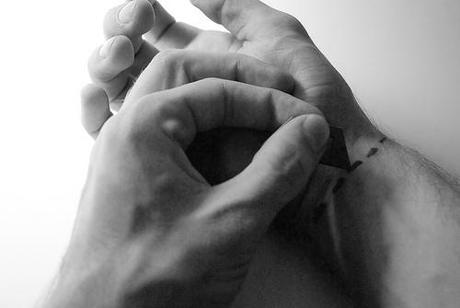 Nervous breakdowns are a serious issue that is much more common than many are willing to believe. Life can be stressful, and puts a lot of pressure on individuals. Without the proper outlet or support around a person, one is libel to fall prey to a breakdown.
Nervous breakdowns are a serious issue that is much more common than many are willing to believe. Life can be stressful, and puts a lot of pressure on individuals. Without the proper outlet or support around a person, one is libel to fall prey to a breakdown.Whether or not it is mild or severe, a nervous breakdown is something that should be noted and avoided at all costs. If a breakdown does occur, it needs to be recognized, accepted, and treated as soon as possible.
It is important for anyone suffering from symptoms of a breakdown to remember that the prospect of a breakdown is a not a sign of insanity. Nor is a breakdown the sign of weakness. A breakdown is the action of a brain that is afflicted and/or stressed beyond a reasonable point. It is the way of the brain finally succumbing to pressure placed upon it.
Think of these symptoms as a warning sign you can use to help you recognize a lifestyle problem or an underlying affliction that must be noted.
Depression
One of the most subtle and common signs of an impending breakdown is depression.
The type of depression that should bring concern is that of the chronic nature. We all have bad days, and simply having a day wherein you are upset, listless, or generally down does not constitute a serious problem. Those who experience frequent bouts of depression, which include self-mutilation, suicidal thoughts or actions, or a loss of hope and future ambitions should take notice.
While these symptoms are more common than some know, they should not be ignored as they point to a serious impending problem.

Depression Cuts
Mania
Often the other side of the depression coin is mania. This is where one is hyper-driven and usually heavily anxious.
Those who suffer from either mania or depression usually have both in spats. Depending upon the severity of either, the manic phase can lead to an overall breakdown. It is quite common that the level of mania is directly and negatively related to the level of depression.
Mood Swings
Again, this symptom is not the garden-variety mood swing. Those who are on the verge of breaking down will often have frequent or violent changes from intense glee and motivation to crippling depression. It can be difficult to note the swings right away. Having a journal or creating a chart of your general mood can help you note severe swings.
Panic Attacks
Those who suffer from mania or manic-depression can often fall victim to panic attacks. Abrupt and severe situations can also bring forth panic attacks that can set into motion a move to a breakdown.
An important key to surviving an initial panic attack (and avoid a fall into a full breakdown), is to remember that a panic attack will pass.
Lying on one’s back, breathing into a paper bag, or distracting the mind with counting or a mantra can help stay the immediate effects.
Hallucinations
For those well down the road of a breakdown (or suffering from a previous condition like bipolar disorder or mild schizophrenia) comes a break from reality. This often comes in the form of sounds or visuals that are usually negative in connotation.

Visual Hallucinations can be quite common
Paranoia
It is not hard to imagine that one who hallucinates and is prone to panic attacks often also suffers from paranoia. However, it is possible one could have paranoid delusions without other symptoms.
This type of paranoia is not simply someone believing in simple conspiracy theories. It is common that the paranoia is ego-centric; meaning that the person afflicted believes someone/something is out to get him or her.
Loss of Interest
Those who are on the verge of a breakdown may find themselves having little interest in items they used to enjoy. In other words, the everyday things that may have helped them enjoy a day no longer appeal to them. This can lead to other more serious signs like chronic depression or panic attacks.
Flashbacks to Trauma
Those who suffer from PTSD or schizophrenia will often have breaks from reality wherein they relive a past event. This is usually a jarring event triggered by a sound or visual. Flashbacks can often lead to panic attacks or violent mood swings of fear and depression.
Alienation
Having social inability or lack of interest in social connectedness is common among those who are near a breakdown. With all the other symptoms discussed, it is easy to see why it is a common side effect. When one feels depressed, panicked, and/or paranoid, being social is a not a desired option.

Once you're on the verge of a nervous breakdown, Alienation and Loneliness follow eventually
Lifestyle Changes
All of these symptoms might be followed by general lifestyle changes. It is common that lifestyle change is based on being generally alone, but rather flamboyant or peculiar when in public.
Alter-egos are common when one is close to a breakdown. These alter-ego instances are often a defensive barrier to the affliction. One must take on another persona when out in public to avoid the mania, paranoia, hallucinations, and fear.
Your Thoughts?
Have you ever thought that you and me could ever get so close to a breakdown? Do all these symptoms really mean that we are on the verge of a nervous breakdown? Oh yes, they do, what do you think?
Jesslyn writes at Hack My Modern Lifestyle, a blog dedicated to providing shortcuts and Life Quotes and Sayings that can make life more productive and fulfilling.

